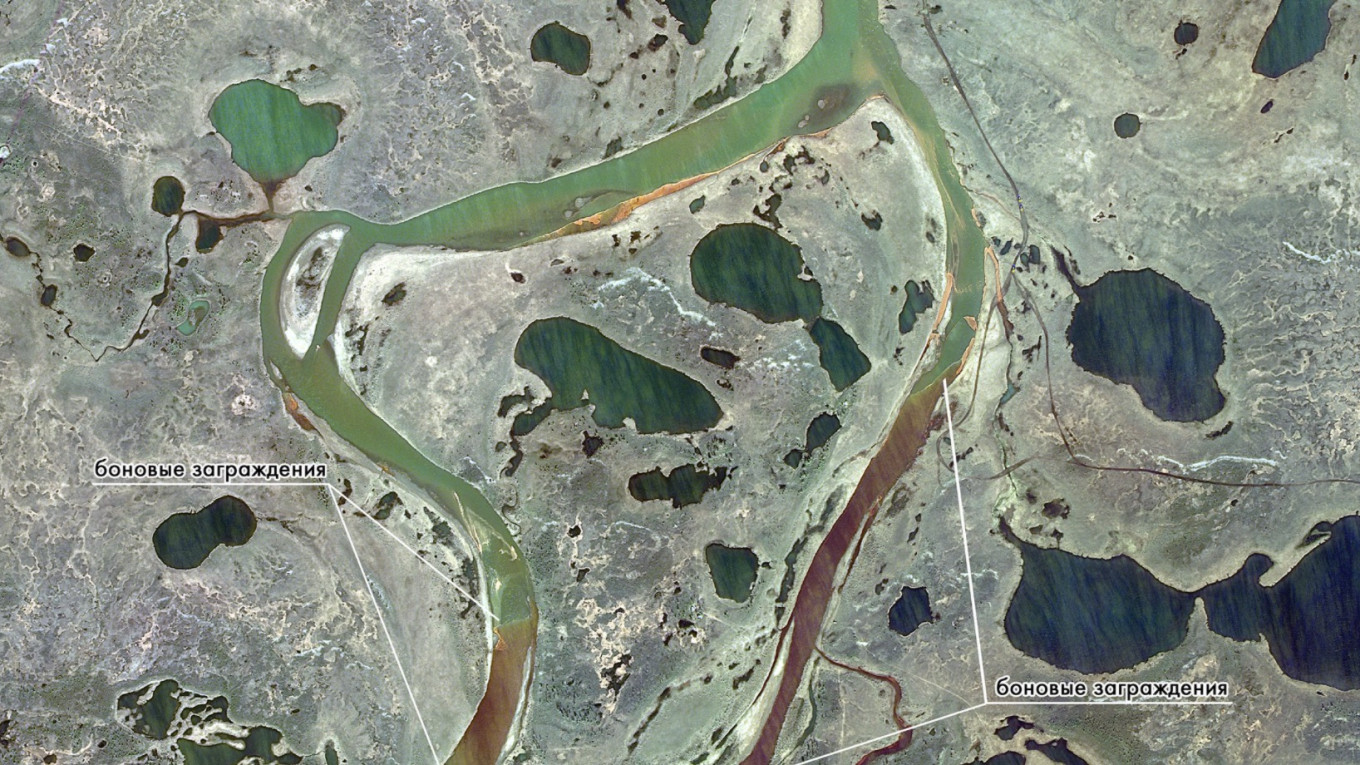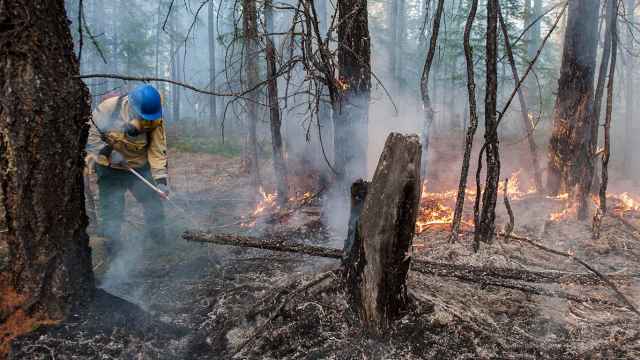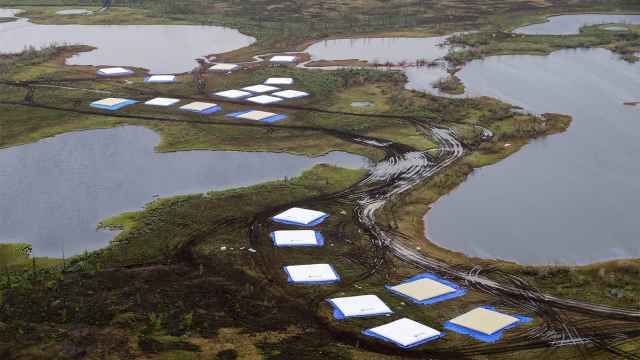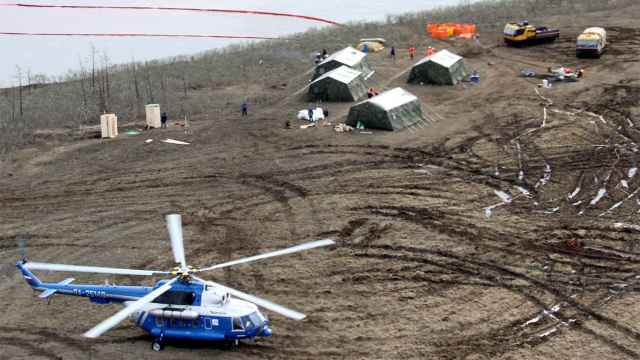A massive fuel spill in northern Siberia has reached an Arctic glacial lake after seeping through floating barriers installed to stop the leak, regional officials said Tuesday.
President Vladimir Putin declared a state of emergency last Wednesday, several days after 21,000 metric tons of diesel leaked from a collapsed fuel tank outside the city of Norilsk. Massive concentrations of pollution were recorded in a nearby river, a phenomenon that local environmental officials said was due to the floating dams being ineffective or installed too late.
“The fuel got into Lake Pyasino,” said Alexander Uss, the governor of the Krasnoyarsk region, referring to the Arctic body of water 20 kilometers from the site of the spill.
Lake Pyasino is a major body of water and the source of the Pyasina River that is vitally important to the entire Taimyr peninsula. The Pyasina River flows into the Kara Sea, which is part of the Arctic Ocean.
“It’s impossible to predict how it will bear this load. It’s important now to keep it from reaching the Pyasina River, which goes further north,” Uss told the local broadcaster Yenisey.
The Krasnoyarsk region’s deputy ecology minister Yulia Gumenyuk said Monday that high concentrations of pollutants had been recorded in Lake Pyasino.
Russia’s Emergency Situations Ministry said later Tuesday that the oil concentration at Lake Pyasino did not exceed the norm.
On Friday, the Emergency Situations Ministry had announced that the spread of pollution had been "stopped." The spill polluted huge stretches of river, triggering a major clean-up effort.
A spokesman for Russia's Marine Rescue Service last week called the spill an unprecedented event for the Arctic region. Russian officials have said it was caused by melting permafrost and the prosecutor general has ordered a review of structures built on unstable ground.
Vladimir Potanin, the head of metals giant Norilsk Nickel which owns the thermal power plant where the spill originated, told Putin last week his company would pay for clean-up efforts.
Sixty-five percent of Russia is covered by permafrost and the Environment Ministry warned in 2018 that its melt threatens pipes and structures as well as buried toxic waste which can seep into waterways.
Four criminal cases have been opened in connection with the incident.
AFP contributed reporting to this article.
A Message from The Moscow Times:
Dear readers,
We are facing unprecedented challenges. Russia's Prosecutor General's Office has designated The Moscow Times as an "undesirable" organization, criminalizing our work and putting our staff at risk of prosecution. This follows our earlier unjust labeling as a "foreign agent."
These actions are direct attempts to silence independent journalism in Russia. The authorities claim our work "discredits the decisions of the Russian leadership." We see things differently: we strive to provide accurate, unbiased reporting on Russia.
We, the journalists of The Moscow Times, refuse to be silenced. But to continue our work, we need your help.
Your support, no matter how small, makes a world of difference. If you can, please support us monthly starting from just $2. It's quick to set up, and every contribution makes a significant impact.
By supporting The Moscow Times, you're defending open, independent journalism in the face of repression. Thank you for standing with us.
Remind me later.






